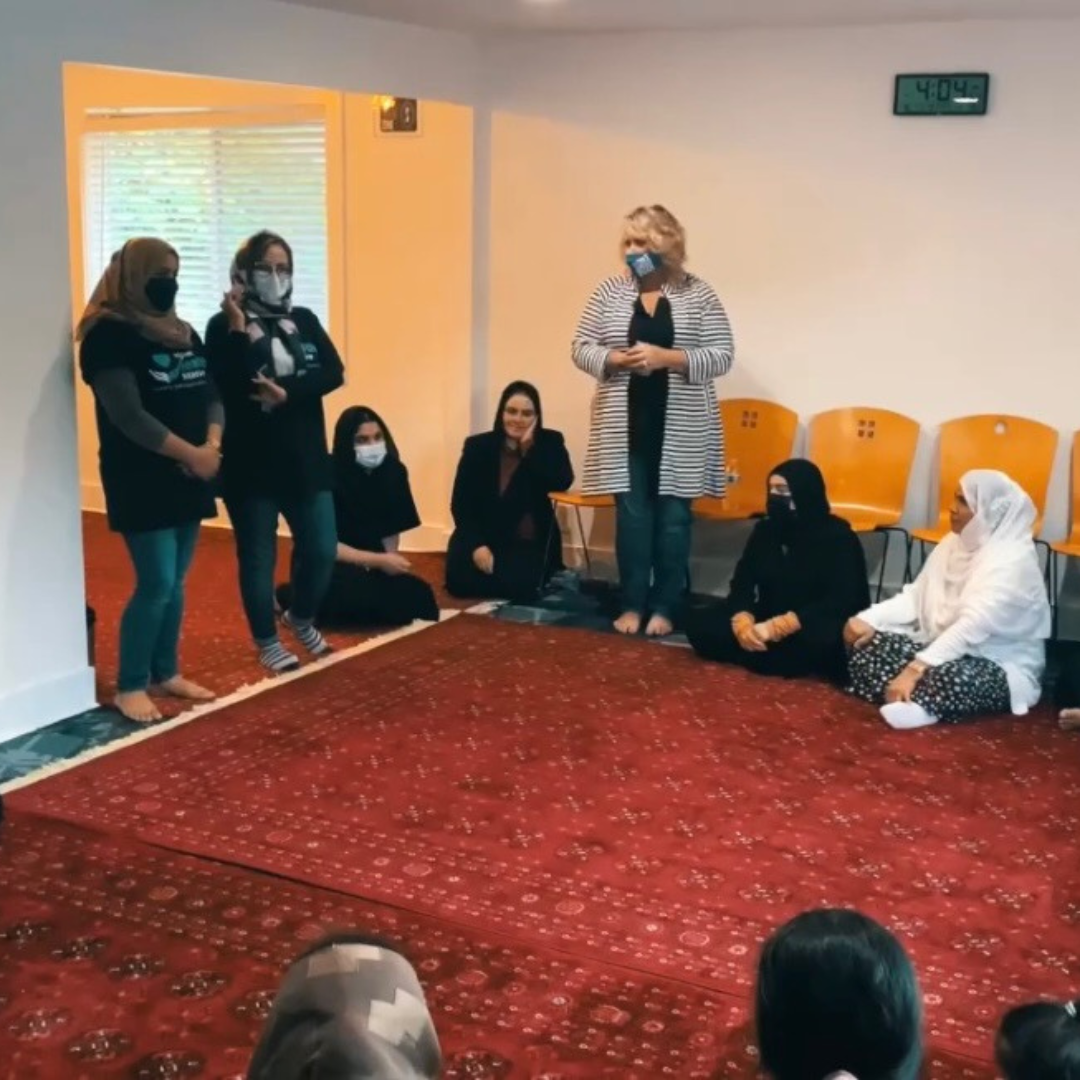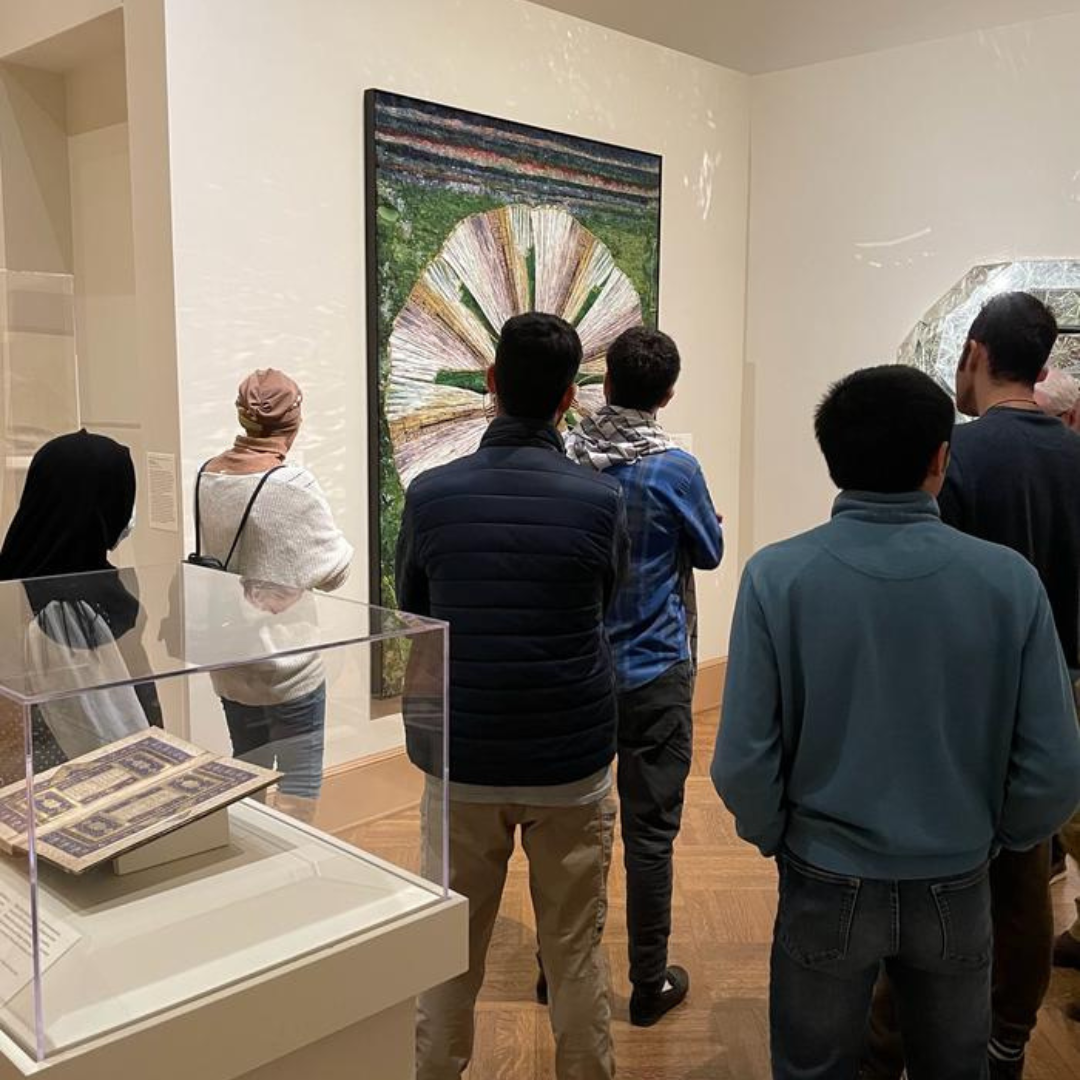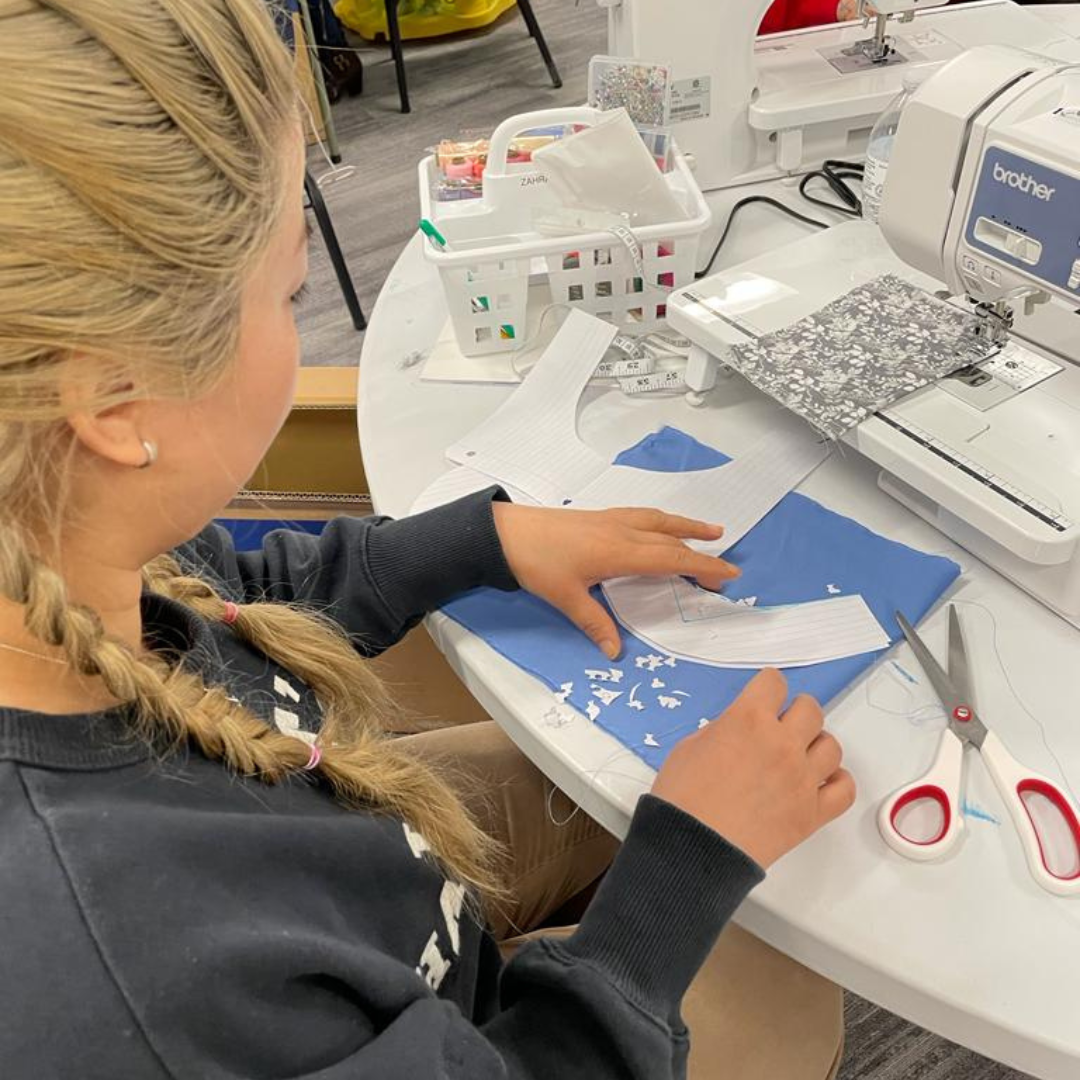Over 75,000 of the Afghans who were displaced when the Taliban took control of Kabul were resettled in the United States through Operation Allies Welcome (OAW) Response. OAW was organized in 2021 as a coordinated effort across federal government offices, national non-profit organizations, state and local resettlement agencies, private businesses, and other stakeholders to resettle and support Afghan newcomers. As Afghans arrived in the United States—amid the ongoing COVID-19 pandemic—resettlement agencies across the country needed to quickly collaborate with federal partners, healthcare systems, public health professionals, social service providers, and community-based organizations to provide timely and appropriate support.
Recently resettled Afghans are adjusting to their new lives while contributing to their communities, securing public benefits, and pursuing opportunities for youth and adults. At the same time, they are managing challenges related to the trauma of sudden displacement and learning to navigate complex systems, like healthcare, in English.
An important part of Afghans’ resettlement process is understanding and addressing mental health and social support needs. Culturally appropriate mental health and social support programming empowers Afghan newcomers to cope with challenges, rebuild their lives, and thrive in their new homes.
Mental Health Challenges and Support Strategies
Afghan newcomers since 2021 have encountered many sources of stress, both before and during their resettlement journey, that may impact their mental wellbeing. Like other refugees displaced from violent conflicts, they experienced or witnessed violence, persecution, and social disruption before leaving Afghanistan. Their travel to the United States involved great uncertainty, concerns about safety, and challenging living conditions.
Even after arrival and integration into new communities, Afghan newcomers have faced a higher risk of mental health issues such as depression, anxiety, and post-traumatic stress disorder (PTSD). Stressors after arrival include but are not limited to:
- Separation from family and social networks
- Concern about family and friends still in Afghanistan
- Uncertainty about housing and inadequate living conditions
- Difficulty meeting basic needs
- Uncertainty about immigration status
- Unemployment, underemployment, and uncertainty about education and employment prospects
- Challenges in acculturating and navigating systems in English
- Loss of social, economic, and occupational status
- Discrimination and xenophobia
Access to mental health services is often challenging for many refugees, including Afghan newcomers, who may encounter linguistic, cultural, and logistical barriers when trying to seek help. Mental health struggles are often a taboo subject surrounded by misinformation and stigma, making it difficult to fully recognize challenges and seek necessary care.
Some community organizations have successfully approached mental health issues through a community focus, by creating or adapting social support programming for Afghan newcomers.
Some key ingredients of these social support programs are:
- Co-creation with input from the Afghan community
- Time for participants to socialize, connect with peers from the Afghan community, and take a break from caregiving, work, and other routine stressors
- Opportunities for participants to share problems, burdens, and concerns in a safe environment
- Separate, customized groups for women, men, and youth
- Informal, non-clinical settings
- Mental health screenings and referrals to mental health counselors
Healing Circles in Washington State
Afghan Health Initiative (AHI) is an Afghan-led non-profit organization in King County, Washington, that provides community-based public health interventions with the broader goal of improving access to health, education, and economic independence. Since 2021, AHI has ramped up its social support programming for youth, women, and men to incorporate more mental health aspects.
The backbone of AHI’s social support programming is a series of recurring group gatherings that give Afghan newcomers an opportunity to create community in their new home. Ariana Anjaz, Senior Director of AHI, says the groups have become “healing circles” in the last two years: “we focus more on providing opportunities to address the stigma of mental health, especially given the light of current circumstances and the traumatizing aspects of that our newer community members have faced coming here.”
Group gatherings at AHI are structured around a specific topic, usually based on issues or concerns raised during the previous week’s gathering. AHI finds resources to distribute or a guest speaker to facilitate a discussion of the new topic, and the first half hour of the gathering is dedicated to learning, sharing resources, brainstorming, and developing strategies to address the current week’s stressor. The next half hour or hour of the meeting is dedicated to informal socializing and decompressing. Participants share food and tea, sit on the floor as they would at home, and have an opportunity to connect with each other in a culturally meaningful way.
In parallel, AHI provides screening for program participants to identify those who might need more mental health support, and refers clients to local mental health provider organizations that offer services in Dari and Pashto. Individuals and families who need further support are connected to linguistically and culturally concordant counselors.
Navid Hamidi, Executive Director of AHI, says, “The Afghan community… is incredibly resilient and incredibly resourceful. We’ve found that when you provide a platform for all of these folks to get together, they talk about their issues, and they help support one another, but even more, they also share so many different resources and success pathways.
Field Trips and Sewing Socials in Minnesota
Alight, a global nonprofit organization that provides humanitarian relief to displaced people in 20 countries, has been supporting Afghan newcomers in Minnesota. Through formal and informal information gathering sessions, Alight heard from Afghan newcomer women and youth that they were experiencing a range of challenges, including loneliness and mental health struggles. In response, Alight co-created two social support programs with the Afghan community: “Taste of Minnesota” field trips and sewing socials.
The field trips are a response to the isolation Afghan women experience at home when men go to work and older children go to school. Every month, on a weekday, Alight takes women and children aged 5 and under on a trip to explore different parts of Minnesota. Alight arranges the transportation, provides community guides who speak Dari and Pashto, and brings along volunteers to help look after the children.
Alight also pays for admission to any venues the group visits and arranges for an Afghan or halal lunch during the outing. The women and children who participate have an opportunity to see more of their new home state and connect with each other.
Alight takes Afghan youth aged 14-25 on a similar field trip one weekend per month.
Alight also hosts sewing socials. About thirty Afghan women gather every week to socialize and sew with machines and materials provided by Alight. Transportation is arranged for participants and childcare is offered on site, in a separate room. An Afghan or halal lunch is provided. There is also a mental health facilitator on site who provides one-on-one sessions with the women via a female interpreter, as well as group sessions.
Sonia Sahar Anunciacion, the Afghan Program Lead at Alight, says: “If I could show them to you, back then from when we started till now, it makes me emotional, because they look so much more healthy… I feel like our programs have truly made a difference. There’s really strong friendships, not only within the Afghan community but with our volunteers.”
- A list of national and regional resources for refugee behavioral health, produced by the Substance Abuse and Mental Health Services Administration
- Walking Together: A Mental Health Therapist’s Guide to Working With Refugees, produced by Lutheran Community Services Northwest


